To be awarded the specialization in Criminal Law and Policy, students must maintain a B- (2.7) grade average in courses taken for the specialization.
Detailed course descriptions are linked in the listings below. Prospective students should bear in mind that, due to curriculum scheduling and faculty availability, not every class listed is taught each year. This is most often true in the case of seminar courses. A sufficient number of courses will be available to enable those students who choose to specialize to satisfy the specialization requirements.
Curriculum
-
Group A
(Minimum of two courses required)
LAW 202Criminal Procedure: Investigations
LAW 211Evidence
LAW 295Criminal Procedure: Adjudication
LAW 309Criminal Law
-
Group B
(Sum of courses from Groups A, B, C, and D must equal four)
LAW 269National Security Law
LAW 296Criminal Procedure: Habeas Corpus
LAW 298International Criminal Law
LAW 389Prison Law and Policy
LAW 429Capital Punishment in America
LAW 449Business Crime
LAW 465Prospects for International Justice
LAW 503Current Topics in Criminal Law
LAW 529Criminal Procedure: Policing Poverty
LAW 534Sentencing Law and Policy
LAW 547Psychology and Criminal Law
LAW 593Preventive Detention
LAW 613The Criminal (In)Justice System
LAW 614Global Perspectives on Criminal Procedure
LAW 657Contemporary Issues Facing the International Criminal Court
LAW 658Human Rights and War Crimes Digital Investigations
LAW 668The 8th Amendment Punishments Clause
LAW 908Suing the Police
LAW 987Business Crime
-
Group C
(Experiential courses are recommended; students must apply and be admitted)
LAW 701Prisoners' Rights Clinic
LAW 705Trial Advocacy
LAW 712Street Law--Youth & Education
LAW 725Supreme Court Clinic
LAW 730Veterans Justice Clinic
LAW 731Community Lawyering in Education Clinic
LAW 733Pre-Trial Criminal Litigation
LAW 738California Environmental Legislation and Policy Clinic
LAW 789Advanced Criminal Trial Advocacy
LAW 790Advanced Evidence Objections and Arguments
LAW 805Part-Time Externship: Criminal
LAW 814Part-Time Externship: Federal Public Defender
LAW 817Criminal Justice Practicum
LAW 818Resentencing Practicum
LAW 837Domestic Violence Prevention Practicum
LAW 977Advanced Trial Advocacy
-
Group D
(Maximum of one course may be counted toward the specialization)
LAW 214Civil Rights
LAW 267Federal Indian Law
LAW 273International Human Rights Law
LAW 331Immigration Law
LAW 376Law and Dissent
LAW 497Critical Issues in Human Rights
LAW 541Problem Solving in the Public Interest
LAW 542Race, Sexuality, and the Law
LAW 697Gun Rights and Regulation
LAW 939Cannabis Law & Policy: Federalism, Regulation, & Litigation
The Williams Institute's 2024 NYC Fall Salon will take place on Thursday, September 12 from 6:00-8:30 PM at the Meta office in Hudson Yards.
We invite you to join our discussion on the current state of LGBTQ+ law and policy and what’s at stake in the upcoming November election and beyond.For tickets to our 2024 NYC Fall Salon, please visit: https://bit.ly/NYCFallSalon24RSVP ends on September 4, 2024.
For more information, please contact Williamsdev@law.ucla.edu.
To be awarded the specialization in Technology Law, students must maintain a B- (2.7) grade average in courses taken for the specialization.
Detailed course descriptions are linked in the listings below. Prospective students should bear in mind that, due to curriculum scheduling and faculty availability, not every class listed is taught each year. This is most often true in the case of seminar courses. A sufficient number of courses will be available to enable those students who choose to specialize to satisfy the specialization requirements.
Curriculum
- Group A
-
Group B
(Sum of courses from Groups A and B must equal four)
LAW 240Antitrust Law I
LAW 301Art and Cultural Property Law
LAW 304International Intellectual Property
LAW 305Entertainment Law
LAW 391Venture Capital and the Start-Up Company
LAW 402AI and Entertainment Law
LAW 421Cross-Border Intellectual Property Litigation
LAW 422Silicon Valley Law for Startups, Entrepreneurs and VCs
LAW 437Telecommunications Regulation
LAW 450News Media Law in the Digital Age
LAW 453Lawyering in Administrative Agencies - Current Issues at the Federal Communications Commission (FCC)
LAW 479Design Law
LAW 489Future Law: Law and Governance under transformative societal trends
LAW 495Artificial Intelligence Law
LAW 504Law, Technology, and Society
LAW 509Rights, Secrecy, and the Limits of Public Interest Litigation
LAW 511A/BSocial Media and the Future of Democracy
LAW 521The Law and Geopolitics of Green Development
LAW 525Patent Intensive
LAW 538Innovation Theory and Intellectual Property
LAW 544Antitrust and Intellectual Property in the Digital Economy
LAW 643The Regulation of the Automobile
LAW 658Human Rights and War Crimes Digital Investigations
LAW 683News Media Law in the Digital Age
LAW 689Future Law: Legal & Governance Responses to Transformative Societal Trends
LAW 731Community Lawyering in Education Clinic
LAW 760A/BPatent Clinic
LAW 766Information Policy Lab
LAW 769Documentary Film Legal Clinic
LAW 777Patent Litigation
LAW 791A/BTalent & Brand Partnerships / Name, Image & Likeness Clinic
UCLA School of Law proudly presents the Critical Race Studies Fellowship, first launched in 2011 under the guidance of Professor Kimberlé Crenshaw. Since its inception, the program has provided lawyers and activists, many of whom came from Latin America, with a unique educational and professional experience to assist in their work against racial discrimination at home.
Fellowship Information
-
Details of the Fellowship
The fellowship offers a full-tuition grant to enroll in UCLA Law’s LL.M. (Master of Laws) Program. This includes the full cost of tuition, health insurance, and mandatory health facilities fees. Applicants should note that the fellowship does not include assistance for living expenses, and they should be prepared to secure additional funding to cover the remaining costs of attendance.
Fellows will earn a specialization in Critical Race Studies, as well as the possibility of additional specializations in Public Interest Law and Policy, Human Rights, Law and Sexuality, or International and Comparative Law. Students will learn the fundamentals of the discipline in Civil Rights Law and Critical Race Theory courses and will take additional coursework that creates opportunities to apply the rigorous analysis arising from the fundamentals to legal areas such as immigration, incarceration, labor, or international law.
The fellowship is housed under UCLA Law’s renowned Critical Race Studies Program (CRS). CRS’s mission is to “Think. Teach. Transform.” by working at the intersection of race and the law to train advocates, leaders, and scholars committed to challenging injustice in all its forms. Founded in 2000, CRS became the first law school program dedicated to incorporating Critical Race Theory (CRT) into legal scholarship and teaching, enabling law students to graduate with a formal CRS specialization. The program remains unique in legal education. CRS faculty include authors of pathbreaking works in CRT that have introduced widely influential ideas and concepts to scholars across the academy, legal practitioners, and the general public, as well as emergent and more recently established scholars who are expanding the field in important ways, including by incorporating new empirical methods and by integrating CRT with clinical teaching and practice, and with international human rights and migration.
CRS is a preeminent training program for the next generation of legal advocates and scholars committed to racial justice. The diverse student body includes many first-generation college graduates and those from communities traditionally underrepresented in legal and academic fields. The program supplements a rigorous academic curriculum with clinical experiences grounded in community partnerships that integrate theory and practice. CRS alumni include racial justice leaders in legal practice, academia, and government around the country and the globe. The program also directly serves the broader public through widely-accessed webinars, symposia that include and collaborate with community organizations, and through our faculty’s frequent appearance in national media and public fora. More information on CRS can be found here.
-
Eligibility & Award Conditions
The UCLA Law Critical Race Studies Fellowship is open to law graduates holding J.D. or LL.B. degrees with a B average or higher from their law school programs. Competitive applicants will also have a demonstrated commitment to race discrimination law and intersectional analyses, through work, volunteer or internship experience, and/or scholarship published in these areas.
As a condition of the award, fellows will be asked to certify that they will return to their home country upon completion of their LL.M. degree and commit to a legal career in related fields.
Although successful candidates initially came predominantly from Latin America, any applicant who demonstrates a background and commitment to the purpose and vision of the fellowship will be considered upon receipt of their application.
-
Application Instructions
To apply for admission, prospective students must submit an online application to UCLA Law's LL.M. Program, a separate supplemental application form for the UCLA Critical Race Studies Fellowship, and supporting documentation.
- UCLA Law LL.M. Program Application
To create an account and complete the online LL.M. program application, click the link above and follow the instructions to submit your application and supporting documentation via the LSAC platform no later than February 1. - UCLA Law Critical Race Studies Fellowship Supplemental Application Form [PDF]
Click the link above to download the supplemental application for the Critical Race Studies Fellowship. After completing this form, include it as part of the "personal statement" file uploaded as a supporting document through the LSAC platform.
Applicants for whom the LSAC fees present a barrier to application may email llm@law.ucla.edu to request consideration for a waiver of the LSAC process.
Please direct questions about the fellowship to vanzyl@law.ucla.edu, and questions about UCLA Law's online LL.M. application procedure to llm@law.ucla.edu.
Please note that UCLA is not able to reimburse any amounts paid to LSAC in the process of applying to the fellowship. Be sure to contact the address above before paying any LSAC fees.
- UCLA Law LL.M. Program Application
Fellows
-
Current Fellows
Current fellows are to be announced.
-
Past Fellows & Affiliated Practitioners
Allyne Andrade e Silva, 2018-19
Julieth Balanta Zuñiga, 2015-16
Maryluz Barragan, 2013-14
Dayana Blanco, 2017-18
Andres Caicedo Berdugo, 2014-15
Andres Caicedo Sanchez, 2022-23
Thiame Carabali Hinestroza, 2016-17
Lina Cordoba Moreno, 2022-23
Marina de Oliveira Reis, 2019-20
Daniel Gomez Mazo, 2013-14
Ana Gonzalez, 2011-12
Diego Grueso, 2012-13
Angelica Mayolo Obregon, 2016-17
Sindis Meza Pineda, 2015-16
Kelis Moreno, 2017-18
Charquia Wright, 2019-20
The Native Nations Law JD Specialization comprises courses focusing on tribal legal systems, federal Indian law, and international advocacy for Indigenous rights. A renowned resource in support of Native Nations, UCLA Law’s Native Nations Law & Policy Center advances Indian nations’ laws and institutions in furtherance of tribal sovereignty and rights of self-determination.
Coursework Requirement
J.D. students are required to complete five courses with a grade of B- or better in each course to complete the program.
- Mandatory Course
-
Group A: Indian Law Electives
Students are required to take at least two courses from this list.
LAW 287Federal Indian Law II
LAW 301Art and Cultural Property Law
LAW 444Indigenous Peoples in International Law
LAW 728Tribal Legal Development Clinic
Federal Indian Law I is a prerequisite for Federal Indian Law II. Exceptions to this policy are at the discretion of the Native Nations Law Specialization Committee.
Priority enrollment for the Tribal Legal Development Clinic is given to Indian Law specialization candidates.
Advanced Tribal Legal Development Clinic satisfies Law 799 as a course.
-
Group B
The sum of Groups A and B must equal four or more courses.
Students must take at least two courses or two additional courses from Group A.
One-unit courses will count as only half a course for this requirement.
LAW 209Real Estate Finance
LAW 212Federal Courts
LAW 214Civil Rights
LAW 216Administrative Law
LAW 228Mergers & Acquisitions
LAW 249Tax Aspects of Mergers & Acquisitions
LAW 250Secured Transactions
LAW 251Business Strategy and Corporate Governance
LAW 261Employment Law
LAW 266Critical Race Theory
LAW 270Public International Law
LAW 273International Human Rights Law
LAW 274Trademark Law
LAW 286Land Use
LAW 290Environmental Law and Policy
LAW 291Taxation of Business Enterprises
LAW 293Public Natural Resources Law and Policy
LAW 302Copyright Law
LAW 305Entertainment Law
LAW 307Intellectual Property
LAW 317Family Law
LAW 319Election Law
LAW 326Health Law and Policy
LAW 350Energy Law and Regulation
LAW 419Real Estate Transactions
LAW 443Comparative Environmental Law
LAW 463Regional Human Rights Protection: The Inter-American System
LAW 490Renewable Energy Project Finance
LAW 527Natural Resources Law
LAW 542Race, Sexuality, and the Law
LAW 582Brands: Constructing Identity
LAW 612Reproductive Rights and Justice
LAW 617Special Topics in Family Law
LAW 692Water Law
LAW 717International Human Rights Clinic
LAW 728Tribal Legal Development Clinic
LAW 738California Environmental Legislation and Policy Clinic
LAW 739Community Economic Development Clinic
LAW 741Environmental Aspects of Business Transactions
LAW 832Voting Rights Policy and Practice
LAW 837Domestic Violence Prevention Practicum
LAW 838Civil Rights Litigation Practicum
A seminar, course or Independent Study may be taken with the approval of a Native Nations Law Specialization Committee.
A Part-time or Full-time Externship may be taken with the approval of the Native Nations Law Specialization Committee.
Law 728 - Tribal Legal Development Clinic cannot count twice in fulfilling the five course requirement.
Participation in the National NALSA Moot Court Competitions will satisfy Law 762 as a course.
Course or Independent Research with non-NNLPC Core or Affiliated Faculty Members
For courses or independent research with non-NNLPC Core or Affiliated Faculty, you may petition for pre-approval by submitting a description of the course or independent research to a member of the Specialization Committee. You should note that it may not always be possible to pre-approve independent research, in which case a decision will be made once the student submits a completed project.
Students may petition the Specialization Committee to have other relevant courses or independent studies counted toward the specialization. The Center faculty may also approve, on a case-by-case basis, specialization credit for appropriate courses taken either abroad as part of Foreign Legal Studies, or as a transfer or visiting student. The list of courses (including seminars and clinics) that satisfy the specialization will be reviewed annually and revised as appropriate by the Specialization Committee, in coordination with the Records Office. Students are encouraged to look into the specifics of the syllabi of each course and to meet with the faculty advisors to ensure they select courses that best achieve their personal educational goals.
Students may petition the Specialization Committee for permission to take Federal Indian Law I and Federal Indian Law II concurrently, or for permission for the Tribal Legal Development Clinic to serve as a pre-requisite to Federal Indian Law II, requests which may be granted, but only in exceptional circumstances.
Students pursuing the J.D. Specialization in Native Nations Law do not receive priority enrollment for any course except the Tribal Legal Development Clinic. However, ultimate enrollment decisions remain at the discretion of the Clinic director. Students are encouraged to enroll for other courses as early as possible in the enrollment period for maximum flexibility.
Please note that not all courses will be offered every year.
Externships
Students pursuing the Specialization in Native Nations Law may pursue full- or part-time externships relating to Indian law for credit towards the specialization’s Group B coursework requirement. A student wishing to use an externship as a qualifying course must receive the prior consent of the Native Nations Law Specialization Committee. Consent will require a demonstration that the externship will provide exposure to relevant substantive areas of law. Regardless of the number of externships or externship units a student completes, a student may use externships to count, at most, as one course.
To be awarded the specialization in Native Nations Law, students must maintain a B- (2.7) grade average in courses taken for the specialization.
Detailed course descriptions are linked in the listings below. Prospective students should bear in mind that, due to curriculum scheduling and faculty availability, not every class listed is taught each year. This is most often true in the case of seminar courses. A sufficient number of courses will be available to enable those students who choose to specialize to satisfy the specialization requirements.
Curriculum
- Required Course
-
Group A: Indian Law Elective
(At least one course is required)
LAW 287Federal Indian Law II
LAW 301Art and Cultural Property Law
LAW 444Indigenous Peoples in International Law
LAW 505A/BMajor Problems in Environment & Sustainability
LAW 728Tribal Legal Development Clinic
The prerequisite for Law - 287 Federal Indian Law II is Law 267 - Federal Indian Law I, though this prerequisite may be waived at the instructor's discretion.
-
Group B: Elective in Law
(Sum of courses from Groups A and B must equal at least three)
(Students must take at least one Group B course, or take three courses from Group A)
(One-unit courses will count as only half a course for this requirement)
LAW 212Federal Courts
LAW 214Civil Rights
LAW 216Administrative Law
LAW 266Critical Race Theory
LAW 270Public International Law
LAW 273International Human Rights Law
LAW 286Land Use
LAW 290Environmental Law and Policy
LAW 293Public Natural Resources Law and Policy
LAW 317Family Law
LAW 350Energy Law and Regulation
LAW 430Partnership and Passthrough Taxation
LAW 435Corporate Taxation
LAW 463Regional Human Rights Protection: The Inter-American System
LAW 521The Law and Geopolitics of Green Development
LAW 597Place, Race, and Power
LAW 692Water Law
LAW 927Human Rights in Action Clinic - International Field Experience
LAW 939Cannabis Law & Policy: Federalism, Regulation, & Litigation
LAW 951Human Rights Challenge
A seminar or other course not listed above may be applied toward the specialization with the approval of a Native Nations Law & Policy Center faculty member.
The list of courses (including seminars and clinics) that satisfy the Indian Law Elective and the Elective in Law will be reviewed annually and revised as appropriate by the Native Nations Law Specialization Committee, in coordination with the Records Office. Students are encouraged to look into the specifics of the syllabi of each course and to meet with the faculty advisors to ensure they select courses that best achieve their personal educational goals.
Students may petition the Native Nations Law Specialization Committee to have other relevant courses or independent studies counted toward the specialization.
The Master of Laws (LL.M.) degree is an advanced, one-year graduate program in which students have the flexibility to enroll in one of several distinct specializations or customize their studies in pursuit of their unique professional goals.
Designed for those who already hold a J.D. or equivalent law degree, the LL.M. welcomes J.D. graduates of U.S. law schools to learn from our world-class faculty and enhance their credentials. Our robust curriculum includes advanced courses in every legal discipline and a rich array of clinical education opportunities.
The Graduate Studies Team
Lara Stemple
Assistant Dean for Graduate Studies and International Student Programs
Professor Stemple has overseen the LL.M. and S.J.D. Programs since 2005. She also teaches and writes in the areas of human rights, global health, gender, sexuality, HIV/AIDS, and incarceration.
Vic Telesino
Representatives from UCLA Law’s Office of Graduate Studies and International Programs often participate in various virtual and in-person recruitment events across the globe. Events will be included on this page once they have been confirmed, so please continue to check back with us here for updates. We look forward to meeting you at one or more of these events.
LL.M. Recruitment Events
-
In-Person Events
Continue to check back for other upcoming events! If you'd like to connect with us to learn more about our LL.M. Program, please book an appointment to speak with us!
-
Online Events
UCLA Law LL.M. Program Information Session for African Candidates - Featuring Student Insights
Wednesday, January 7
10:00am-11:00am PST
7:00pm-8:00pm WAT
8:00pm-9:00pm SAST
Time Zone Converter
Online via Zoom
Register
Continue to check back for other upcoming events! If you'd like to connect with us to learn more about our LL.M. Program, please book an appointment to speak with us! -
Closed Events
UCLA Law LL.M. Program Information Session: Fellowship Opportunities
Thursday, December 4
10:00am-11:00am PST
Online via Zoom
e-fellows LL.M. Day Munich
Saturday, November 22
10:30am-4:30pm CET | (10:30hh-16:30hh CET)
Konferenzzentrum München (Munich Conference Center)
Lazarettstraße 33
80636 München
Germany
Agenda
10:30hh-11:15hh | Check-In
11:15hh-12:15hh | Law Firm LL.M. Panel Discussion
12:15hh-13:00hh | Lunch & Networking Break
13:00hh-13:40hh | Welcome Address
13:45hh-15:00hh | LL.M. Roundtable Group Sessions
15:00hh-15:20hh | Coffee Break
15:20hh-16:30hh | LL.M. Fair
U.S. LL.M. Fairs Virtual Information Session: Writing the Perfect Personal Statement for Your Law School Application
Wednesday, November 19
11:00am-12:30pm PDT
Online via Zoom
DAJV LLM Day
Monday, November 17
10:00am-5:30pm CET | (10:00hh-17:30hh CET)
Microsoft Deutschland GmbH
Holzmarkt 2a
50676 Köln
Germany
e-fellows LL.M. Day Frankfurt
Saturday, November 15
10:30am-4:30pm CET | (10:30hh-16:30hh CET)
Chamber of Commerce & Industries (CCI) [IHK Frankfurt am Main]
Börsenplatz 4
60313 Frankfurt am Main
Germany
Agenda
10:30hh-11:15hh | Check-In
11:15hh-12:15hh | Law Firm LL.M. Panel Discussion
12:15hh-13:00hh | Lunch & Networking Break
13:00hh-13:40hh | Welcome Address
13:45hh-15:00hh | LL.M. Roundtable Group Sessions
15:00hh-15:20hh | Coffee Break
15:20hh-16:30hh | LL.M. Fair
California Law LL.M. Consortium LL.M. Tour: Life & Law in California - Zurich
Thursday, November 13
6:00pm-8:00pm CET
Bär & Karrer AG
Brandschenkestrasse 90
CH-8002 Zurich
Switzerland
EducationUSA Europe LL.M. Tour: Rome LL.M. Fair
Monday, November 10
3:00pm-6:00pm CET
Roma Tre University
(Università degli Studi Roma Tre - Giurisprudenza)
Law Department
Via Ostiense, 161/165
00154 Roma RM
Italy
Study Law in California Webinar: Preparing a Successful LL.M. Application
Thursday, November 6
10:00am-11:30am PST
Online via Zoom
EducationUSA Europe LL.M. Tour: Paris LL.M. Fair
Wednesday, November 5
6:00pm-8:30pm CET
Sciences Po Paris Campus
"1 Saint Thomas"
1 place Saint-Thomas d’Aquin
75007 Paris
France
EducationUSA Europe LL.M. Tour: Brussels LL.M. Fair
Tuesday, November 4
6:00pm-8:00pm CET
Deloitte Belgium (HQ)
Gateway Building
Luchthaven Brussel Nationaal 1 J
1930 Zaventem
Belgium
EducationUSA Europe LL.M. Tour: Istanbul LL.M. Fair
Sunday, November 2
3:00pm-5:00pm EEST
Divan İstanbul Hotel
Harbiye, Asker Ocağı Cd.
No:1, 34437
Şişli/İstanbul
Turkey
EducationUSA Latin America LL.M. Tour: Bogotá LL.M. Fair
Wednesday, October 29
5:00pm-8:00pm COT
JW Marriott Hotel Bogotá
#8-60 Calle 73
Chapinero
Bogotá
Cundinamarca 110221
Colombia
EducationUSA Latin America LL.M. Tour: Lima LL.M. Fair
Monday, October 27
5:30pm-8:30pm PET
Novotel Lima San Isidro
Av. Victor Andrés Belaunde 198
San Isidro 15073
Lima
Peru
EducationUSA Latin America LL.M. Tour: Santiago LL.M. Fair
Saturday, October 25
10:00am-1:00pm CLT
InterContinental Santiago
Av. Vitacura 2885
7550023 Las Condes
Región Metropolitana
Santiago
Chile
EducationUSA Latin America LL.M. Tour: Buenos Aires LL.M. Fair
Thursday, October 23
5:00pm-8:00pm ART
Sheraton Buenos Aires Hotel & Convention Center
San Martín 1225 1275
C1104 Ciudad Autónoma de Buenos Aires (CABA)
Argentina
EducationUSA Latin America LL.M. Tour: Montevideo LL.M. Fair
Tuesday, October 21
5:30pm-8:30pm UYT
UDELAR (University of the Republic) Faculty of Law
Universidad de la República
Av. 18 de Julio 1824
11200 Montevideo
Departamento de Montevideo
Uruguay
EducationUSA Latin America LL.M. Tour: Asunción - UCLA Law LL.M. Program Spotlight
Monday, October 20
1:00pm-2:30pm PYT
Centro Cultural Paraguayo Americano
Av. España 352
Asunción 001218
Paraguay
EducationUSA Latin America LL.M. Tour: São Paulo LL.M. Fair
Thursday, October 16
6:00pm-9:00pm BRT
InterContinetal Sao Paulo
Alameda Santos, 1123
Jardim Paulista
São Paulo - SP, 01419-001
Brazil
WeUni x UCLA Webinar: Study Law in Los Angeles - Insight from UCLA LL.M. Students & Alumni
Tuesday, October 14
9:30am PDT (6:30pm CST)
Online via Zoom
EducationUSA Latin America LL.M. Tour: Rio de Janeiro LL.M. Fair
Saturday, October 11
11:00am-2:00pm BRT
JW Marriott Hotel Rio de Janeiro
Av. Atlântica, 2600
Copacabana
Rio de Janeiro - RJ, 22041-001
Brazil
EducationUSA Latin America LL.M. Tour: Mexico City LL.M. Fair
Monday, October 6
4:00pm-7:00pm CST
Mexico City Marriott Reforma Hotel
Avenida Paseo de la Reforma 276
Juárez, Cuauhtémoc
06600 Ciudad de México
CDMX
Mexico
U.S. LL.M. Fairs Virtual Information Session: The LL.M. Student Experience
Tuesday, September 30
11:00am-12:30pm PDT
Online via Zoom
California Law LL.M. Consortium LL.M. Tour: Life & Law in California - Jakarta
Friday, September 19
2:00pm-4:00pm WIB
@america
Pacific Place Mall, 3rd Floor
Jl. Jend. Sudirman kav 52-53
Senayan, Kec. Kby. Baru
Kota Jakarta Selatan
Daerah Khusus Ibukota
Jakarta 12190
Indonesia
California Law LL.M. Consortium LL.M. Tour: Life & Law in California - Taipei
Tuesday, September 16
6:00pm-8:00pm CST
Taipei Public Main Library
No. 125號, Section 2
Jianguo S Rd, Da’an District
Taipei City 106210
Taiwan
LSAC Digital LL.M. Forum (LL.M. Only)
Friday, September 12
3:00am-6:00am PDT | General forum, booth availability, and live chat with UCLA
Online
California Law LL.M. Consortium LL.M. Tour: Life & Law in California - Seoul
Thursday, September 11
7:00pm-9:00pm KST
Hashed
20f, 374 Gangnam-daero
Gangnam District
Seoul
South Korea
California Law LL.M. Consortium LL.M. Tour: Life & Law in California - Tokyo
Saturday, September 6
10:00am-12:00pm JST
Convention Room AP Tokyo Marunouchi
Marunouchi, 1 Chome-1-3, Nissay
Marunouchi Gardentower, 3F
Chiyoda City
Tokyo 100-0005
Japan
U.S. LL.M. Fairs Virtual Webinar: Is the U.S. LL.M. Right for You?
Wednesday, September 3
11:00am-12:30pm PDT
Online via Zoom
Life & Law in California Webinar: Earn Your LL.M. in the Golden State
Friday, August 29
5:00pm-6:30pm PDT
Online via Zoom
U.S. LL.M. Fairs Virtual Webinar: Is the U.S. LL.M. Right for You?
Tuesday, July 29
11:00am-12:30pm PDT
Online via Zoom
California Law LL.M. Consortium: Applying to LL.M. Programs in California - Brazil
Monday, April 7
2:00pm-4:00pm PDT
6:00pm-8:00pm BRT
Online via Zoom
e-fellows LL.M. Day Munich
Saturday, March 22
10:30am-5:15pm CET | (10:30hh-17:15hh CET)
Konferenzzentrum München (Munich Conference Center)
Lazarettstraße 33
80636 München, Germany
Agenda
10:30hh-11:00hh | Check-In
11:15hh-12:15hh | Law Firm LL.M. Panel Discussion
12:15hh-13:00hh | Lunch & Networking Break
13:00hh-13:30hh | Welcome Address
13:30hh-14:45hh | LL.M. Roundtable Group Sessions
14:45hh-15:15hh | Coffee Break
15:15hh-17:15hh | LL.M. Fair
e-fellows LL.M. Day Berlin
Saturday, March 15
10:30am-5:15pm CET | (10:30hh-17:15hh CET)
Park Inn by Radisson Berlin Alexanderplatz
Alexanderpl. 7
10178 Berlin, Germany
Agenda
10:30hh-11:00hh | Check-In
11:15hh-12:15hh | Law Firm LL.M. Panel Discussion
12:15hh-13:00hh | Lunch & Networking Break
13:00hh-13:30hh | Welcome Address
13:30hh-14:45hh | LL.M. Roundtable Group Sessions
14:45hh-15:15hh | Coffee Break
15:15hh-17:15hh | LL.M. Fair
U.S. LL.M. Fairs Virtual Workshop: Understanding the U.S. State Bar Exam - Virtual Information Session & Alumni Panel
Tuesday, January 28
11:00am-12:30pm PST
Featuring LL.M. Alumni:
- Javier Daza Rossi, Miami LL.M. '23 (New York Bar)
- Alvaro Manrique Barrenechea, Vanderbilt LL.M. '19 (New York & Tennessee Bars)
- Joanna Hills, Colorado LL.M. (Colorado Bar)
Online via Zoom
Pursuing an LL.M. in Environmental Law: Opportunities in the U.S.
Thursday, January 16
8:00am-9:30am PST
Online via Zoom
U.S. LL.M. Fairs Virtual Workshop: Writing the Personal Statement for Your Law School Application
Wednesday, December 11
11:00am-12:30pm PST
Online via Zoom
U.S. LL.M. Fairs Virtual Workshop: Financing Your LL.M.
Tuesday, December 10
11:00am-12:30pm PST
Online via Zoom
UCLA School of Law proudly presents the Health & Human Rights Fellowship. Launched in 2011, and expanded in 2022, the program has provided specialized training to top law graduates for careers as impact-oriented public interest lawyers in the areas of health, human rights, HIV prevention, and gender equality. The program now features global eligibility to support activists and scholars around the world who have dedicated their work to addressing issues of access to health care and the resulting violations that occur when this right is denied in their home countries.
Fellowship Information
-
Details of the Fellowship
The fellowship offers a full-tuition grant to enroll in UCLA Law’s LL.M. (Master of Laws) Program. This includes the full cost of tuition, health insurance, and mandatory health facilities fees.
Fellows may earn a specialization in UCLA Law’s David J Epstein Program in Public Interest Law and Policy, Law and Sexuality, or related fields. Through Public Interest Law and Policy workshops and seminars, fellows will meet PILP students and faculty and study the problem-solving challenges faced in public interest legal practice. Fellows will examine the principal skills and conceptual approaches useful to public interest lawyers in the PILP seminar, Problem Solving in the Public Interest.
Through the course Human Rights and Sexual Politics, fellows will interact with students from medicine and public health, and conduct legal research and advocacy for a cause of their choice. Each UCLA Law Health & Human Rights Fellow will also elect other related courses and author a substantial writing assignment on a health, human rights, and/or gender equality-related legal issue facing their home country.
-
Eligibility & Award Conditions
The UCLA Law Health & Human Rights Fellowship is open to legal professionals and law graduates holding LL.B. degrees classified second class (division two) or higher from law school programs. Competitive applicants will also have a demonstrated commitment to health, human rights, or gender equality, and work or volunteer experience, or research publications in these areas.
As a condition of the award, fellows will be asked to certify that they will return to their home country upon completion of their LL.M. degree, and commit to a public interest career that promotes health, human rights, and gender equality in their practice region.
Although successful candidates in the past have predominately come from Africa, any applicant who demonstrates a background and commitment to the purpose and vision of the fellowship will be considered upon receipt of their application.
-
Application Instructions
To apply for admission, prospective students must submit an online application to UCLA Law's LL.M. Program, a separate supplemental application form for the UCLA Law Health & Human Rights Fellowship, and supporting documentation.
- UCLA Law LL.M. Program Application
To create an account and complete the online LL.M. program application, click the link above and follow the instructions to submit your application and supporting documentation via the LSAC platform between September 1 and February 1. - UCLA Law Health & Human Rights Fellowship Supplemental Application Form [PDF]
Click the link above to download the supplemental application for the Health & Human Rights Fellowship. After completing this form, include it as part of the "personal statement" file uploaded as a supporting document through the LSAC platform.
Applicants for whom the LSAC fees present a barrier to application may email llm@law.ucla.edu to request consideration for a waiver of the LSAC process.
Please direct questions about the fellowship to vanzyl@law.ucla.edu, and questions about UCLA Law's online LL.M. application procedure to llm@law.ucla.edu.
- UCLA Law LL.M. Program Application
-
Project Leadership
UCLA School of Law is the youngest top law school in the U.S. It has pioneered innovative specializations and cutting-edge research centers, and has long been committed to skills training courses that offer students hands-on lawyering experience as they master legal doctrine.
The UCLA Law Health & Human Rights Fellowship is directed by Lara Stemple, Assistant Dean for Graduate Studies and International Student Programs.
Fellows
-
Current Fellows
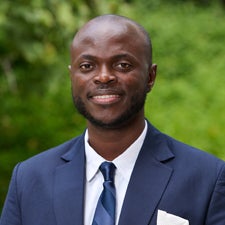 Ayodeji Ayolola
Ayodeji Ayolola
Health and Human Rights Fellow, 2024
LL.B. University of Ibadan, 2016Ayodeji Ayolola was a 2023-2024 UCLA Health and Human Rights Fellow. He earned his Bachelor of Laws (LL.B.) at the University of Ibadan in 2016 and his qualification certificate at the Nigerian Law School in 2018. He is licensed as a barrister and solicitor of the Supreme Court of Nigeria and has practiced in commercial litigation and dispute resolution. Prior to joining the LL.M. program at UCLA Law, he served as an adjunct professor of corporate law at the Nigerian Law School for five years. While at UCLA, Ayodeji completed his LL.M. with a specialization in Public Interest Law and Policy. He also completed a judicial externship in the chambers of Associate Justice Martin J. Jenkins of the Supreme Court of California.
 Elizabeth Mzungu
Elizabeth Mzungu
Health and Human Rights Fellow, 2024
B.Com LL.B. University of Pretoria, 2011Elizabeth Mzungu was a 2023-24 UCLA Health and Human Rights Fellow. She earned her B.Com Law cum laude in 2010 and LL.B. in 2011, both from the University of Pretoria in South Africa. Before joining UCLA, she worked in legal mediation and policy advocacy for greater accessibility to public resources. While at UCLA, she completed her LL.M. with a specialization in Public Interest Law and Policy as well as in Law and Sexuality. She focused on the intersectionality of law, race, sexuality, and public benefits. She was a 2024 U. Serve L.A. honoree and graduated with the highest pro bono distinction for her contributions to the PILP community and for her completion of over 70 hours of pro bono work with underserved communities in Los Angeles. She contributed to a forthcoming publication by the UCLA Institute for Technology, Law & Policy wherein she used her public interest lens to develop policy recommendations for the governance of extended reality technologies.
-
Past Fellows & Affiliated Practitioners
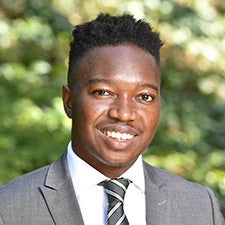 Ohene Yaw Ampofo-Anti
Ohene Yaw Ampofo-Anti
Sonke Health & Human Rights Fellow, 2019Ohene Yaw Ampofo-Anti was a 2018-19 UCLA-Sonke Health and Human Rights Fellow. He earned his LL.B. from the University of Cape Town in 2013 and was admitted as an attorney in 2017. Prior to attending UCLA, Ampofo-Anti worked as a trainee investigator at Public Protector South Africa (PPSA). At PPSA, he assisted with ongoing investigations into maladministration in various government entities. His work covered issues related to administrative justice, immigration law, family law, refugee and asylum seeker law, and socio-economic rights. Ampofo-Anti has also written legal articles for Ground Up, an online news publication covering social justice issues in South Africa. Ampofo-Anti’s articles have been featured on numerous news websites and publications throughout South Africa.
 Ayodeji Ayolola
Ayodeji Ayolola
Health and Human Rights Fellow, 2024Ayodeji Ayolola was a 2023-2024 UCLA Health and Human Rights Fellow. He earned his Bachelor of Laws (LL.B.) at the University of Ibadan in 2016 and his qualification certificate at the Nigerian Law School in 2018. He is licensed as a barrister and solicitor of the Supreme Court of Nigeria and has practiced in commercial litigation and dispute resolution. Prior to joining the LL.M. program at UCLA Law, he served as an adjunct professor of corporate law at the Nigerian Law School for five years. While at UCLA, Ayodeji completed his LL.M. with a specialization in Public Interest Law and Policy. He also completed a judicial externship in the chambers of Associate Justice Martin J. Jenkins of the Supreme Court of California.
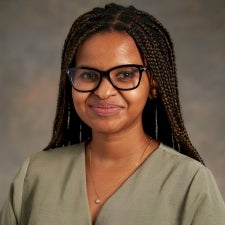 Chuma Bubu
Chuma Bubu
Health and Human Rights Fellow, 2023Chuma Bubu was a 2022-2023 UCLA Health and Human Rights Fellow. She earned a Bachelor of Social Sciences in Economic History, International Relations and Politics 2014; and a Bachelor of Laws degree in 2017, both from the University of Cape Town. Chuma is an admitted attorney in South Africa. Prior to attending UCLA, Chuma held a position as an associate in the Public and Regulatory Law department at ENSafrica in Johannesburg. While at UCLA, she worked as a racial justice and human rights research assistant for the Promise Institute of Human Rights. Her primary research interest areas are at the intersection of human rights law, critical race theory and gender.
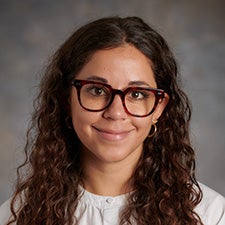 Melissa Hendrickse
Melissa Hendrickse
Sonke Health and Human Rights Fellow, 2022
Melissa Hendrickse was a 2021-2022 UCLA-Sonke Health and Human Rights Fellow. She earned a Bachelor of Arts in politics, history, and French in 2013, and a Bachelor of Laws degree in 2017, both from the University of Cape Town. She is admitted as an attorney in South Africa. Prior to attending UCLA, Melissa held a position as an associate in public and constitutional law at Webber Wentzel in Cape Town. While at UCLA, Melissa worked as a racial justice and human rights student fellow for the Promise Institute for Human Rights. In this role, she focused on issues surrounding climate reparations for previously colonized states. Melissa also interned as a critical race theory law clerk at the African American Policy Forum. Her primary interest areas are at the intersection of human rights law and racial justice, with a particular emphasis on restorative and redistributive justice for colonialism and other forms of racial oppression.
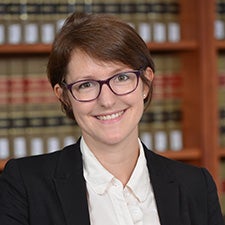 Katy Hindle
Katy Hindle
Sonke Health & Human Rights Law Fellow, 2013Katy Hindle was a 2012-2013 UCLA Law – Sonke Health & Human Rights Fellow. She obtained a Bachelor of Social Sciences degree in Politics, Gender Studies and Sociology in 2005 and a Social Science degree in International Relations in 2008, both from the University of Cape Town in South Africa. Hindle also earned a postgraduate LL.B. degree at UCT in 2009 and completed her articles of clerkship at the firm Edward Nathan & Sonnenbergs, Inc. She was admitted as an attorney in South Africa in 2012.
During her year as a Sonke Fellow at UCLA Law, Hindle focused her studies on health, gender, human rights, and empirical legal studies. Wherever possible, Hindle made attempts to link the academic content of her law school coursework to current issues in South Africa; Hindle was “grateful that her professors allowed and encouraged her to do this.” It made the transition to joining Sonke upon graduation rapid, and she now “grounds her advocacy and research efforts within theoretical frameworks” she studied at UCLA Law.
After earning her LL.M. degree from UCLA Law, Hindle worked as a fellow in Sonke’s Policy Development and Advocacy Unit, focusing on projects relating to gender and the South African judiciary, the decriminalization of sex work, and research and advocacy surrounding sexual violence in prisons. After her fellowship, Hindle was hired as an associate in the Policy Development and Advocacy Unit at Sonke, and she plans to continue a lifelong career in public interest law in South Africa.
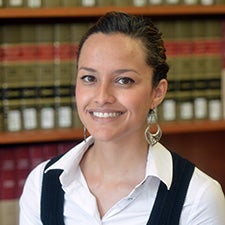 Mateenah Hunter
Mateenah Hunter
Sonke Health & Human Rights Law Fellow, 2014Mateenah Hunter was a 2013-2014 UCLA Law – Sonke Health & Human Rights Fellow. Prior to earning her LL.M. degree from UCLA Law, she earned a Bachelor of Laws degree from Wits University in 2009, completing her practical legal studies in the Human Rights Unit of Wits Law Clinic. Hunter served her articles of clerkship at the Legal Resources Centre in Johannesburg and then clerked for Justice Yacoob of the Constitutional Court of South Africa. She also briefly clerked for Justice Frank Stock, VP at the Hong Kong Court of Appeal before joining the Open Society Foundation for South Africa as a project officer in their Criminal Justice Initiative.
During her time at UCLA Law, Hunter pursued two specialized courses of study: Public Interest Law & Policy and Law & Sexuality. While at UCLA Law, Hunter felt as though she “was spoilt for choice due to the wide number of courses [she] could choose from covering issues of health and broader human rights.” She felt “fortunate . . . to be taught by great professors” and “really enjoyed being able to take courses in the Public Health School” while completing her LL.M. degree at the Law School because it offered a perspective beyond a legal one.
Upon graduation from UCLA, Hunter began working as a fellow in Sonke Gender Justice’s Johannesburg office. Through this fellowship, Hunter works in Sonke’s Policy Development and Advocacy Unit, focusing on several different projects, including: The Sex Work Decriminalization Project; The National Strategic Plan to End Gender-Based Violence; and Oversight and Accountability in the Criminal Justice System Involving Crimes Against Women. In July of 2014, through the UCLA-Sonke partnership, Hunter attended an intensive course on Women’s Health and Empowerment co-sponsored by the UC Global Health Institute’s Center of Expertise on Women’s Health and Empowerment and Aga Khan University in Nairobi, Kenya.
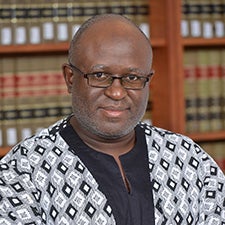 Godfrey Kangaude
Godfrey Kangaude
Sonke Health & Human Rights Law Fellow, 2013Godfrey Kangaude was a 2012-2013 UCLA Law-Sonke Health & Human Rights Fellow. Prior to pursuing his LL.M. degree at UCLA Law, Kangaude earned a Bachelor of Philosophy at Urbaniana, an LL.B. (Hons) at the University of Malawi, and an LL.M. degree at the University of the Free State in South Africa. Kangaude is an expert in sexual and reproductive rights, having previously worked for many years on research and advocacy concerning the high incidence of abortion-related morbidity and mortality with Ipas, an international NGO, in Malawi.
During his year as a Sonke Fellow at UCLA Law, Kangaude specialized in Public Interest Law & Policy, focusing his studies and coursework on sexuality, gender and human rights law. After earning his LL.M. degree from UCLA Law, Kangaude began working with Sonke Gender Justice as a Policy Development and Advocacy Fellow, where his work has focused on research, advocacy and training of men and boys to achieve gender equality.
Kangaude’s interests lay at the intersection of society, culture, and human rights, and in particular the sexual and reproductive rights of populations including adolescents, persons with disabilities, LGBTI persons, and women. He has published several works: Disability, the Stigma of Asexuality and Sexual Health: A Sexual Rights Perspective, 5 Rev. Disability Stud. 22 (2009); a chapter in the book Sexuality and Disability: Politics, Identity and Access (2010); and A Sexual Rights Approach to Addressing Gender-Based Sexual Violence Among Male Prisoners in Malawi, 14 Af. Hum. Rts L.J. 1 (2014), the latter of which he began in a seminar course at UCLA Law.
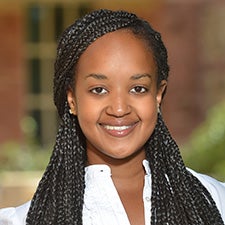 Portia Karegeya
Portia Karegeya
Sonke Health & Human Rights Fellow, 2015Portia Karegeya was a 2014-2015 UCLA Law - Sonke Health & Human Rights Fellow. Prior to earning her LL.M. degree with honors from UCLA Law, she earned a Master of Laws from McGill University in 2013 and an LL.B. from the University of Cape Town in 2011, where she also graduated with a Bachelor of Economics and Law. A lawyer born in Rwanda, raised in Uganda, and educated in South Africa, Canada, and the U.S., Karegeya's research interests span the globe, and have focused on human rights, gender, global health, sexual violence, access to affordable medicines, and freedom of expression and information. Her current work includes legal research for the Global Freedom of Expression and Information @Columbia and work with the Health and Human Rights Law Project at UCLA Law. Karegeya has a forthcoming publication with Lara Stemple and Sofia Gruskin in Human Rights Quarterly entitled, "Human Rights, Gender, and Infectious Disease: From HIV/AIDS to Ebola."
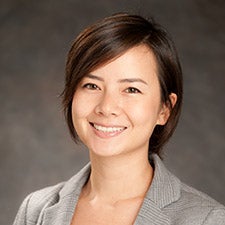 Emily Nagisa Keehn
Emily Nagisa Keehn
UCGHI Women's Health & Empowerment Fellow, 2010Emily Nagisa Keehn is the associate director of the Academic Program in the Harvard Law Human Rights Program (HRP). Her work primarily focuses on the intersection of human rights issues with criminal justice, gender, and health.
Prior to joining HRP, Keehn worked in South Africa where she was the head of policy development and advocacy at Sonke Gender Justice in Cape Town. At Sonke, she developed cases for strategic litigation, and directed parliamentary engagement, research, and advocacy related to health, gender equality, sexual and gender-based violence, policing, and penal reform.
Keehn has published her scholarship in Feminist Criminology and the Health & Human Rights Journal, presented before the South African Parliament, and has helped shape national policies on corrections, gender, and health. Her media commentary has included the Guardian, Al-Jazeera, the Mail & Guardian, the Huffington Post, CNN, and United Nations IRIN News.
Previously, Keehn worked for the Health & Human Rights Law Project at UCLA School of Law and was awarded an inaugural UC Global Health Institute Women’s Health & Empowerment Fellowship. She also held positions with the Annenberg Foundation, mothers2mothers, Legal Aid of Cambodia, and Relief International. Keehn has a B.A. in Anthropology from UC San Diego, a J.D. from UCLA School of Law, and is a member of the State Bar of California.
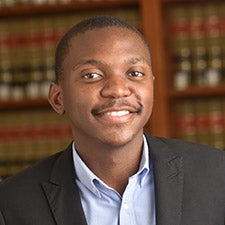 Ralph Madlalate
Ralph Madlalate
Sonke Health & Human Rights Fellow, 2018Ralph Madlalate was a 2017-18 UCLA Law-Sonke Health and Human Rights Fellow. Prior to completing his LL.M. at UCLA Law, he earned his LL.B. from the University of the Witwatersrand in 2014. Madlalate served as a research and teaching associate at the University of the Witwatersrand in 2015, and thereafter earned an LL.M. in human rights advocacy and litigation (cum laude) from the same university in 2016. That year, he joined the Legal Resources Centre as a candidate attorney, where he worked to advance civil, political, and socio-economic rights at the domestic and regional levels.
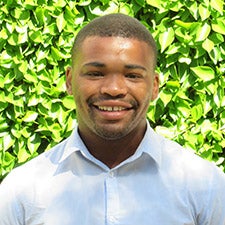 Thamsanqa Malusi
Thamsanqa Malusi
Sonke Health & Human Rights Fellow, 2020Thamsanqa Malusi was a 2019-20 UCLA-Sonke Health and Human Rights Fellow. He completed his LL.B. at the University of Cape Town in 2014, and a Bachelor of Social Science degree in political and legal studies from the same institution in 2012. Thamsanqa was admitted as an attorney in 2017. Prior to enrolling at UCLA, he worked as an associate in a public interest law firm in Johannesburg, where he focused his practice on land reform, occupational health and safety, consumer protection, and constitutional and administrative law. Thamsanqa has extensive experience assisting mining communities and land restitution beneficiaries with settlement agreements, negotiations, commercial structures, and proceeds management with an eye to transparency and accountability. His legal career includes work on several high-profile South African cases, ranging from a class action lawsuit for victims of the listeria outbreak to litigation against South Africa’s gold mining industry, which culminated in the largest settlement in South Africa’s legal history.
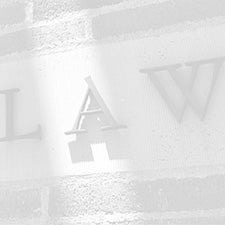 Sinethemba Memela
Sinethemba Memela
Health and Human Rights Fellow, 2023
LL.B. University of the Witwatersrand, 2015
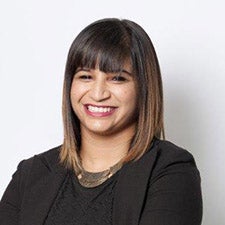 Nabeelah Mia
Nabeelah Mia
Sonke Health & Human Rights Fellow, 2017Nabeelah Mia was a 2016-2017 UCLA Law-Sonke Health and Human Rights fellow. Prior to completing her LL.M. at UCLA Law, she earned a Bachelor of Social Science in Psychology and Law in 2009 and a Bachelor of Social Science (Honours) in Psychology in 2010, both at the University of Cape Town. She also earned a Bachelor of Laws at the University of Cape Town in 2012. In 2013, Mia completed her articles of clerkship at Webber Wentzel, a South African law firm, and was appointed as an associate in the Corporate Practice department in 2015. Her areas of interest include sexual and reproductive health and rights, with a particular emphasis on adolescents, as well as on prison advocacy and reentry services.
 Letlhogonolo Mokgoroane
Letlhogonolo Mokgoroane
Sonke Health & Human Rights Fellow, 2018Letlhogonolo Mokgoroane was a 2017-18 UCLA Law-Sonke Health and Human Rights Fellow. Before completing his LL.M. studies at UCLA, he earned his LL.B. from Stellenbosch University in 2013. At Stellenbosch, Mokgoroane served as a tutor and as an on-campus residence academic mentor. He co-founded the First Generation Camp, which ensures that first-generation university students are equipped with the skills needed to succeed. Following graduation, Mokgoroane completed his articles and was appointed as an associate at Bowman Gilfillan Inc. in Johannesburg. He then clerked for Justice Mbuyiseli Madlanga at the Constitutional Court of South Africa. He is a co-creator of the Cheeky Natives – a literary podcast that reviews arts and literature of black authors and creative people. His areas of interest include identity politics and sexuality, intersectionality, and socio-economic rights.
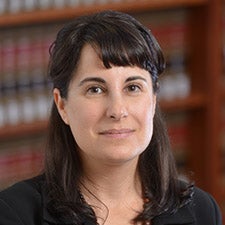 Tzili Mor
Tzili Mor
UCLA School of Law Visiting Jurist, 2014A former Visiting Jurist at UCLA School of Law’s Visiting Scholars & Researchers Program, Tzili Mor is an international human rights expert in advocacy, law reform, and litigation focused on gender justice and women’s human rights. Previously she was acting director and clinical fellow at Georgetown Law’s International Women’s Human Rights Clinic, a global coordinator on human rights defenders with Amnesty International, and a human rights and gender specialist with the American Bar Association Rule of Law Initiative, based in the Middle East and Central Asia. She served as a Gender Justice Adviser in Afghanistan working with the country’s first special prosecution Unit on Violence Against Women. She holds a B.A. from UCLA, a Master of Science degree focused on International Development from Georgetown University, and J.D. and LL.M. degrees in advocacy and international human rights law from Georgetown Law.
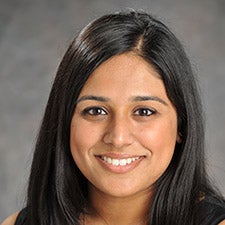 Manisha Munshi
Manisha Munshi
UCGHI Women’s Health & Empowerment Fellow, 2010Manisha Munshi was a Women’s Health and Empowerment Fellow at the UC Global Health Institute. Through this fellowship, funded by the National Institutes for Health Fogarty International Center, Munshi’s research focused on legal empowerment models to help combat the spread of HIV/AIDS among women in detention in South and Southeast Asia. She conducted her research at Just Detention International, a human rights organization in Los Angeles that works to end sexual abuse in detention. Munshi examined the legal framework relevant to women in detention in South and Southeast Asia. She also conducted qualitative field research in Mumbai, India exploring sex workers’ experiences with detention. Munshi was mentored by Lara Stemple at UCLA School of Law, David Eisenman at UCLA David Geffen School of Medicine, and Lovisa Stannow at Just Detention International.
Munshi earned her A.B. with a joint concentration in Social Studies and Women, Gender, and Sexuality Studies from Harvard College (2006) and her J.D. from the UCLA School of Law (2010). Her research interests include international law, human rights, trafficking and sex work, and the intersections among these topics. She has conducted anti-trafficking work for Saathi, a Mumbai-based NGO, and has researched refugee resettlement policies at the office of the UN High Commissioner for Refugees.
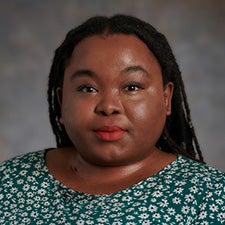 Sandile Ndelu
Sandile Ndelu
Sonke Health and Human Rights Fellow, 2022
Sandile Ndelu was a 2021-2022 UCLA-Sonke Health and Human Rights Fellow. She holds a Bachelor of Laws as well as a Bachelor of Arts in Media and Writing Studies, both from the University of Cape Town. An attorney of the High Court of South Africa, Sandile was most recently attorney and advocacy coordinator at the University of the Witwatersrand’s Centre for Applied Legal Studies (CALS). There, she worked across all programmatic areas of the public interest law organization, namely in business and human rights, civil and political justice, environmental justice, gender justice, and home, land, and rural democracy. She currently leads the philanthropic advocacy team at FRIDA | The Young Feminist Fund, an intermediary fund committed to moving resources to young feminist collectives in the global south.
 Elizabeth Mzungu
Elizabeth Mzungu
Health and Human Rights Fellow, 2024
Elizabeth Mzungu was a 2023-24 UCLA Health and Human Rights Fellow. She earned her B.Com Law cum laude in 2010 and LL.B. in 2011, both from the University of Pretoria in South Africa. Before joining UCLA, she worked in legal mediation and policy advocacy for greater accessibility to public resources. While at UCLA, she completed her LL.M. with a specialization in Public Interest Law and Policy as well as in Law and Sexuality. She focused on the intersectionality of law, race, sexuality, and public benefits. She was a 2024 U. Serve L.A. honoree and graduated with the highest pro bono distinction for her contributions to the PILP community and for her completion of over 70 hours of pro bono work with underserved communities in Los Angeles. She contributed to a forthcoming publication by the UCLA Institute for Technology, Law & Policy wherein she used her public interest lens to develop policy recommendations for the governance of extended reality technologies.
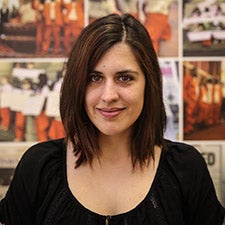 Ariane Nevin
Ariane Nevin
Sonke Health & Human Rights Fellow, 2015Ariane Nevin completed a Bachelor of Arts in Philosophy, Politics and History and subsequently pursued her interest in human rights by earning a postgraduate degree in Law at the University of Cape Town. During her time at UCT, she participated in student activism and community outreach and became a member of Students for Law and Social Justice, a national student movement dedicated to protecting human rights, preventing discrimination and promoting the rule of law. In 2013 Nevin joined SECTION27 as a fellow, where she worked on issues relating to the right to education. After completing her fellowship, she remained at SECTION27 as a junior researcher and expanded her portfolio to include access to healthcare. Nevin plans to pursue a career in public interest law, and hopes to focus on issues relating to healthcare access.
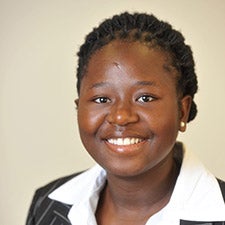 Nomonde Nyembe
Nomonde Nyembe
Sonke Health & Human Rights Law Fellow, 2012Nomonde Nyembe was one of the two inaugural UCLA Law-Sonke Health & Human Rights Fellows during the 2011-2012 academic year. Prior to pursuing her LL.M. degree at UCLA Law, Nyembe earned her LL.B. degree at the University of the Witwatersrand and completed her articles of clerkship at the firm Edward Nathan & Sonnenbergs, Inc. She then clerked for Justice Mogoeng Mogoeng of the Constitutional Court of South Africa.
During her year as a Sonke Fellow at UCLA Law, Nyembe specialized in Public Interest Law & Policy, focusing her studies on gender, health, and human rights. Nyembe appreciated the multidisciplinary nature of her studies at UCLA Law and especially the opportunity to take two classes outside of the law school in public health and advocacy. Nyembe’s courses at the law school, especially Human Rights & Sexual Politics, helped her to “contextualize sexuality as a human rights issue, a political issue . . . related to and at times dominated by a health discourse.” Through the Public Interest Law & Policy specialization, Nyembe received invaluable training “on the utility, complexity, and multifaceted nature of advocacy for social justice.”
After earning her LL.M. degree from UCLA Law, Nyembe began working at Sonke Gender Justice where she conducted research for advocacy purposes, made written and oral submissions to government bodies, and helped local communities with capacity building and mobilization. Nomonde worked at Sonke as a Policy Development and Advocacy Associate for an additional year after her fellowship year ended. She now works at the University of the Witwatersrand in the Centre for Applied Legal Studies, a law clinic that engages in advocacy and litigation. Her current work is centered specifically in the Business and Human Rights Programme which aims to ensure that corporate entities abide by and advance human rights principles.
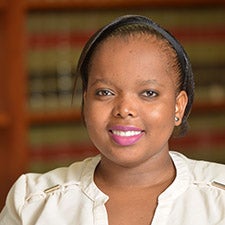 Thabang Pooe
Thabang Pooe
Sonke Health & Human Rights Law Fellow, 2016Thabang Pooe was a 2015-2016 UCLA-Sonke Health and Human Rights Fellow. Prior to earning her LL.M. degree from UCLA Law, Pooe earned an LL.B. from North West University in 2011 and served as clerk for Justice Mbuyiseli Madlanga on South Africa's highest court, the Constitutional Court of South Africa. She also served as fellow and legal researcher for SECTION27, a public interest law center in South Africa. Pooe currently serves as a liaison for Out in Africa Ride, an organization that supports African NGOs working on LBGT rights. Her areas of interest concern the right to education and the right to health, with specific focus on access to health services, sanitation and school infrastructure, sexual victimization in schools, HIV, and medical scheme regulation.
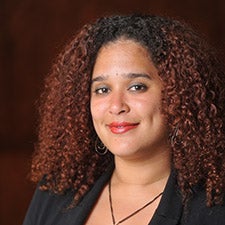 Cherith Sanger
Cherith Sanger
Sonke Health & Human Rights Law Fellow, 2012Cherith Sanger was one of the two inaugural UCLA Law-Sonke Health & Human Rights Fellows during the 2011-2012 academic year. Prior to studying at UCLA Law, Sanger was an accomplished litigator working to end sexual and domestic violence, hate crimes, and discrimination against LGBTI persons. In addition to her six years as a litigator, Sanger had also taught a course in Legal Education and Development to candidate attorneys in South Africa.
During her year as a Sonke Fellow at UCLA Law, Sanger specialized in Public Interest Law & Policy. In fact, Sanger applied for the UCLA-Sonke Fellowship program for the specific purposes of “further developing her skills as a public interest lawyer,” with the intention of “taking her advanced skills back to South Africa to reduce gender based violence and HIV and the impact of AIDS.”
After earning her LL.M. degree from UCLA Law, Sanger worked at Sonke as a fellow in the Policy Development and Advocacy Unit. Sanger stayed on at Sonke after her fellowship year ended and was promoted to a management position in the Policy Development and Advocacy Unit. Sanger currently works as an independent legal consultant in Cape Town, South Africa, providing legal services and conducting research and writing in the areas of gender, health, and human rights law.
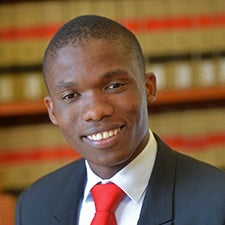 Sekgame Shadrack Tebeile
Sekgame Shadrack Tebeile
Sonke Health & Human Rights Law Fellow, 2014Shadrack "Shaddy" Tebeile was a 2013-2014 UCLA-Sonke Health & Human Rights Fellow. He obtained a Bachelor of Laws degree from University of Limpopo in 2012. Tebeile then clerked for clerked for Justices Froneman and Skweyiya of Constitutional Court of South Africa. He was admitted as an Advocated of the High Court of South Africa in 2013.
Tebeile had an interesting and challenging experience as a Sonke Fellow during his year at UCLA Law. Tebeile believes that studying at UCLA Law “granted him an opportunity to be exposed to different dilemmas faced by the international community” with respect to health and human rights.
Tebeile is now studying for the Doctor of Laws (LL.D.) degree at the University of Fort Hare with a focus on the judicial realization and enforcement of socio-economic rights in South Africa. After the completion of his LL.D., Tebeile intends to teach public interest law in South Africa and pursue a Ph.D. related to access to higher education.
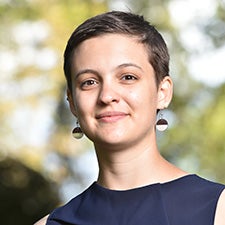 Nicole van Zyl
Nicole van Zyl
Sonke Health & Human Rights Fellow, 2019Nicole van Zyl was a 2018-2019 UCLA-Sonke Health & Human Rights Fellow. She completed her LL.B. at the University of Cape Town in 2016, and a Master’s degree in Criminology, Law and Society from the same institution in 2017. Since earning her LL.B., she has tutored students in Constitutional Law, Criminal Law, and the Law of Evidence at the University of Cape Town, in addition to providing mentoring and additional academic support to students. During her time teaching, she conducted research and wrote about legal issues surrounding the sexual grooming of children. Van Zyl is primarily interested in issues of criminal defense, penal reform, and the socio-economic rights of persons re-entering communities after incarceration.
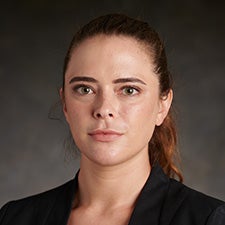 Lauren Venter
Lauren Venter
Sonke Health and Human Rights Fellow, 2022
Lauren Venter was a 2021-2022 UCLA-Sonke Health and Human Rights Fellow. She earned a BA Law degree in 2015 and a Bachelor of Laws degree in 2017, both from the University of Pretoria. She was admitted as an attorney in South Africa in January 2021. Prior to attending UCLA, Lauren worked as an associate at DLA Piper in Johannesburg as part of the Banking, Finance and Restructuring team. In this role, she focused primarily on cross-border banking, finance, and restructuring transactions, and was also involved in many pro bono matters. These included projects for organizations such as UNICEF and UNAIDS, which involved advising and conducting research on the reproductive rights of women in African countries, domestic violence and sexual assault laws in South Africa, and the rights of prisoners in various African countries during the COVID-19 pandemic. Lauren’s interests lie in public interest and health law.
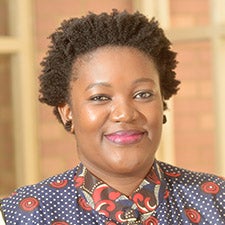 Nobukhosi Ntombifuthi Zulu
Nobukhosi Ntombifuthi Zulu
Sonke Health & Human Rights Fellow, 2017Nobukhosi Zulu was a 2016-17 UCLA Law-Sonke Health and Human Rights Fellow. A Zimbabwean national, Zulu earned an LL.B. at University of KwaZulu-Natal in 2012. In 2013, she conducted research with a focus on economic development and governance systems. In 2014, Zulu began articling at Lawyers for Human Rights, where she worked in the refugee and migrant rights clinic. Her work centered on a project with former and current Mozambican migrant mine workers and their families in rural Mozambique. Zulu has also worked with a Zimbabwe-based NGO that provides sexual and reproductive health education resources and sanitary supplies to girls. Her interests include gender equality, sexual and reproductive rights, migration, and economic justice. At UCLA, Zulu focused her research on migration and human rights issues as they relate to women and children.
 Lindsey Zwicker
Lindsey Zwicker
Women’s Health & Empowerment COE Coordinator, UC Global Health Institute, 2012Lindsey Zwicker served as COE Coordinator from November 2010 through August 2012. She received a joint JD/MPP from UCLA in May 2010 and has spent much of her work and academic career focusing on sexual and reproductive health and rights. After receiving a B.A. in Women’s Studies from UC Santa Barbara, she worked as a Program Assistant for the Center for Reproductive Health Education in Family Medicine (“RHEDI”) at Montefiore Hospital in the Bronx. She then spent some time as a research assistant for the Irish Family Planning Association, in which she researched Irish adolescents’ access to contraception and sexuality education for a policy report on minors’ restricted access to the full range of reproductive healthcare. During law school, she spent summers working as a law clerk for the New York Civil Liberties Union, Reproductive Rights Project and the Center for Reproductive Rights. Throughout her graduate studies, she focused much of her research and advocacy interests on human rights, sexual violence and women’s conditions in prisons, and HIV/AIDS policies. In her role as COE Coordinator, Lindsey liaised with the faculty leadership to manage the Center and contribute substantively to its conceptualization, growth and development.